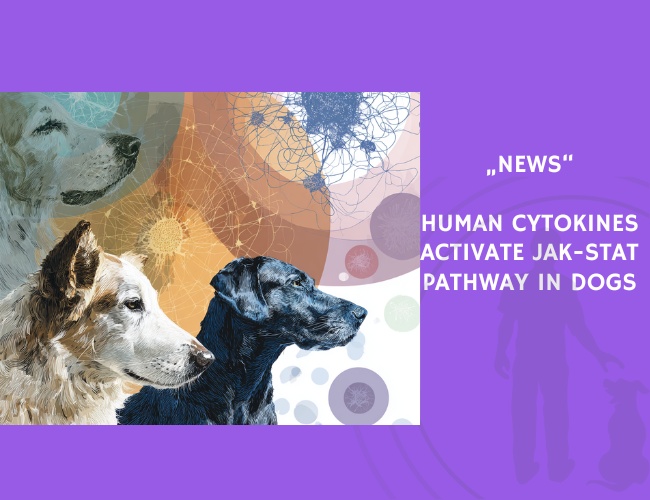In research presented at the **2024 AACR Annual Meeting** and published in Cancer Research, **King Leung Fung and colleagues** demonstrated that **human cytokines**, particularly IL-6, activate **JAK-STAT signaling** in canine CD4 T-cells, a core pathway in immune regulation. The study provides compelling support for the use of dogs in preclinical immunology and drug efficacy studies.
Using flow cytometry to measure STAT protein phosphorylation in whole blood, the researchers assessed how canine lymphocytes responded to cytokines. Interestingly, **human IL-6 triggered stronger responses** in canine cells than many canine-derived IL-6 products, highlighting the **biological conservation** of this signaling mechanism across species. Both human and canine IL-6 activated T-cells in humans, but only **human IL-6 effectively stimulated canine T-cells**.
In addition, several **JAK inhibitors** suppressed cytokine-driven STAT activation in both species. However, **tocilizumab**, an IL-6 receptor blocker effective in humans, failed to inhibit this signaling in dogs, suggesting **species-specific differences** in receptor interactions.
The study also found that **IL-1 alpha** and **IL-7** were more species-restricted. Human IL-1 alpha had no effect on canine-sensitive cells, and IL-7 activity was also largely limited to within the species of origin.
These findings have broad implications. They validate the JAK-STAT pathway as a **shared immune mechanism** between dogs and humans and demonstrate the feasibility of using canine blood assays to evaluate **immune modulators and anti-inflammatory agents**. This could accelerate the development of safer, more targeted therapies that benefit both human and canine patients with autoimmune and cancer-related diseases.
Source: King Leung Fung, Melissa L. Breiner, James B. Mitchell, Ralph E. Parchment. Published in Cancer Research, March 22, 2024. Presented at the American Association for Cancer Research Annual Meeting 2024, Abstract No. 2837.










